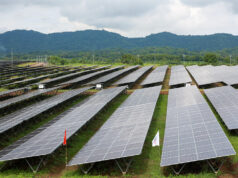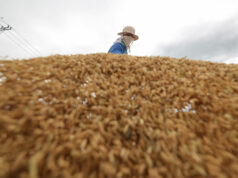Manila Water deal may lead to renewed use of Wawa Dam
By Victor V. Saulon
Sub-Editor
THE original proponent of a project that targets to deliver 500 million liters per day (MLD) said the recently signed memorandum of understanding (MoU) with Ayala-controlled Manila Water Co., Inc. is the initial step that could resolve legal hurdles blocking the development of the Wawa Dam as a water source.
“This is an important step towards resolving the legal impediment preventing the development of one of the most strategic water supply sources for Metro Manila,” said Anthony C. Violago, president of San Lorenzo Ruiz Builders & Developers Group, Inc., in a statement on Sunday.
Mr. Violago and his partner, shipping magnate Enrique K. Razon, Jr., plan to develop a water supply facility at the Wawa catchment area traversing the municipality of Rodriguez and the city of Antipolo, both in the province of Rizal.
The legal impediment involves water rights that Mr. Violago’s group raised in court against Metropolitan Waterworks and Sewerage System (MWSS). Reynaldo V. Velasco, the agency’s administrator, had said that he would allow the project only if Mr. Violago’s group withdraws the complaint.
On Friday, Manila Water disclosed that it had signed the MoU with Mr. Razon’s Prime Metroline Infrastructure Holdings, Inc. (Prime Infra).
Mr. Razon has proposed to invest and assume a controlling stake in the project through an 82% share ownership once he was convinced of its legal, commercial and financial viability, the antitrust watchdog Philippine Competition Commission (PCC) said in 2017.
In turn, Mr. Violago’s company will contribute the Wawa water permit, an application for water volume increase, and the water project in exchange for an 18% stake in it. PCC cleared the partnership on Dec. 19, 2017.
Wawa Dam was formerly the main water source for Metro Manila prior to the construction of Angat Dam.
Manila Water became the possible third partner in the project, which the groups describe as strategically located to serve the expansion areas of the east zone concessionaire.
Mr. Razon, who leads Prime Infra, said the project is “not an immediate fix, but rather a medium- to long-term solution.”
“Yet our project is one of the fastest and most sustainable ways to solve this current water crisis. If we don’t act now, this will be a recurring problem,” he said in the same statement that also quoted Mr. Violago.
The Prime Infra statement said talks continue between the company and Manila Water to start the project “at the soonest possible time, especially considering the current water crisis.”
Since early this month, Manila Water has been experiencing a water shortage of about 150 MLD, which it was trying to plug through a number of means, including advancing the operation of a new water treatment plant, a cross-border water sharing with Metro Manila’s other concessionaire, and the activation of deep wells. It previously said the water deficit would be “totally eliminated” in June.
The MoU between Prime Infra and Manila Water calls for them to cooperate in the possible development of the Wawa bulk water supply project. The agreement formalizes the formation of a technical team that will conduct a technical study, which will be reviewed and approved by the MWSS.
Prime Infra said that compared to Laguna de Bay and other similar water supply options, the project does not require an expensive treatment technology such as reverse osmosis. At the 500-MLD capacity, it can serve more than 500,000 households, it added.
Guillaume Lucci, Prime Infra president and chief operating officer, said he is optimistic that the project will start considering the government’s support for developing new water sources for Metro Manila and Rizal province.
“The proximity and water source quality of the Wawa catchment area will allow us to deliver first water no later than 2022. Because of the scale and life cycle cost of large dams, the public can be assured that we will deliver it in a cost-effective manner,” he said.



